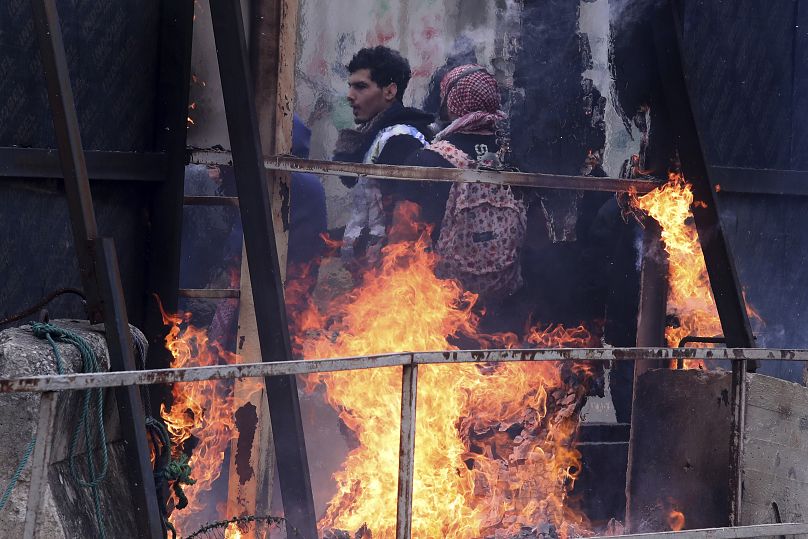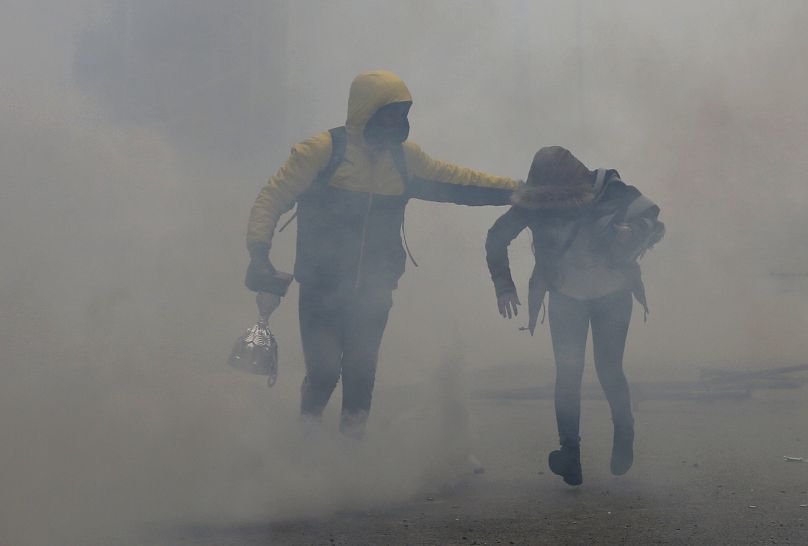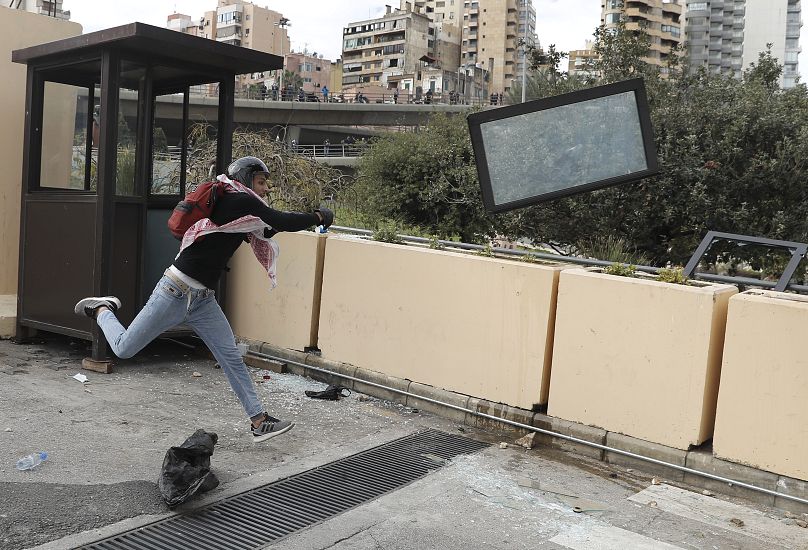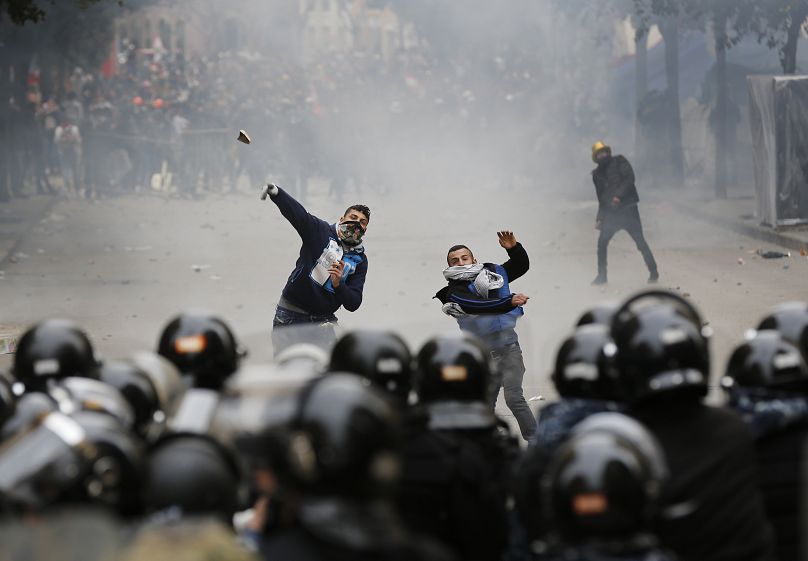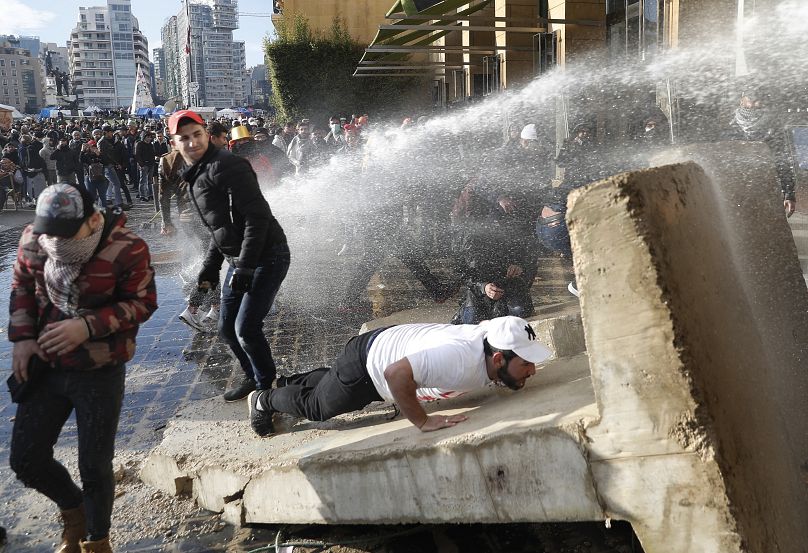Lebanon's government has won a vote of confidence in parliament in part because of its plan to tackle the country's financial crisis.
Lebanon's new government has won a vote of confidence in parliament based in part on its plan to tackle the country's crippling economic and financial crisis.
 ADVERTISEMENT
ADVERTISEMENT
 ADVERTISEMENT
ADVERTISEMENT
It comes as security forces used to tear gas to try and disperse thousands of protesters near the parliament building Beirut earlier on Tuesday.
Protesters threw stones at security forces and tried to block the MPs' paths, delaying the start of a meeting where the new cabinet was due to submit its plan before the crucial vote.
A group of rioters later set fire to a bank in the downtown area. More than 200 people, including a legislator, were injured in the riots, some of whom were rushed to hospital for treatment.
Police threw a tight security dragnet around the area, and special forces and riot policemen moved to quickly reopen roads that were closed by protesters.
"No confidence," chanted some of the protesters. The meeting began just before noon and was expected to last until Wednesday unless a vote is held Tuesday night.
Lebanon has been gripped by anti-government protests since October. Demonstrators are calling for sweeping reforms and an end to a political class they deem as corrupt and incompetent, blaming it for the rapidly worsening financial crisis. The protests forced the resignation in October of the former prime minister, Saad Hariri.
A group of protesters surrounded the car of one Cabinet minister, Demianos Kattar, as he was on his way to the nearby government headquarters, pelting it with eggs and pounding it with their fists before an army and police force pushed them away.
The protesters also attacked legislator Salim Saadeh in his car. ``Thank God I am good. I thank everyone for their love,'' Saadeh said in a video posted on his Twitter account, his shirt tainted with blood and his left eye blue and swollen.
``"Does the protest movement approve of the attack on colleague Salim Saadeh?'' Parliament Speaker Nabih Berri said during the parliament session.
Tear gas
Security forces fired tear gas in several streets leading to parliament, where protesters tried to remove parts of a giant concrete wall. In other streets, troops forced protesters from the middle of the road to allow for traffic to pass.
Near one of the entrances, government supporters attacked some of the protesters in order to force them to open the way. Security forces separated the two sides. The Lebanese Red Cross said 28 injured people were taken to hospitals while 190 others were treated on the spot.
Rescue plan
As the meeting got underway, Prime Minister Hassan Diab read the 16-page government statement on a rescue plan to get Lebanon out of its economic and financial crisis, the worst since the end of the 1975-90 civil war.
The plan includes reforms in the judicial, financial and administrative fields, as well as plans fighting corruption and fixing the country's finances.
Lebanon has one of the highest debt ratios in the world, standing at more than 150% of GDP and worsening over recent years with no economic growth and high unemployment.
In the statement read by Diab, the prime minister said "painful'' measures are needed. He asked that his government be given a chance, noting it would be difficult to extricate Lebanon from the crisis once ``we reach total collapse.'' He said slashing interest rates were among measures that needed to be taken in order to revive the economy and reduce the debt.
``Those who think they can survive the collapse of the economy are mistaken,'' Diab said.












